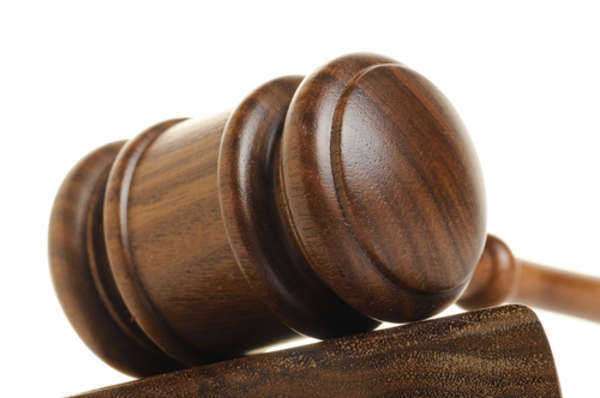Katz v. United States
Introduction
Katz v United States is a landmark decision by the United States Supreme Court that addressed the question of whether the government's warrantless electronic surveillance of a suspect violated the Fourth Amendment's protection against unreasonable searches and seizures. The case involved the electronic surveillance of Charles Katz, a bookie who was suspected of illegal gambling activities. The Supreme Court's decision in Katz v United States established the principle that individuals have a reasonable expectation of privacy in their electronic communications.
Background
Charles Katz was a bookie who frequently used a public telephone booth in Los Angeles to conduct illegal gambling activities. The FBI suspected Katz of engaging in illegal gambling, and began conducting surveillance of Katz's phone calls by attaching a listening device to the outside of the telephone booth.
Katz was eventually arrested and charged with illegal gambling activities, but he challenged the constitutionality of the electronic surveillance, arguing that it violated his Fourth Amendment rights.
The case eventually made its way to the United States Supreme Court, which agreed to hear the case to determine whether the government's warrantless electronic surveillance of Katz violated the Fourth Amendment's protection against unreasonable searches and seizures.
The Court's Decision
In a 7-1 decision, the Supreme Court held that the government's warrantless electronic surveillance of Katz violated the Fourth Amendment's protection against unreasonable searches and seizures. The Court emphasized that the Fourth Amendment protected not only physical searches, but also electronic surveillance that invaded an individual's reasonable expectation of privacy.
The Court established the principle that individuals have a reasonable expectation of privacy in their electronic communications, regardless of whether they are using a public or private telephone. The Court held that the government's monitoring of Katz's phone calls constituted an unreasonable search and seizure, as it violated Katz's reasonable expectation of privacy.
Impact and Legacy
The Katz v United States decision had a significant impact on the interpretation and application of the Fourth Amendment's protection against unreasonable searches and seizures. The decision established the principle that individuals have a reasonable expectation of privacy in their electronic communications, and that electronic surveillance by the government must be accompanied by a warrant or a showing of probable cause.

The Katz decision has also influenced subsequent cases related to electronic surveillance, and has been cited in debates surrounding government surveillance programs and the balance between national security and individual privacy.
Conclusion
The Katz v United States case is a landmark decision by the US Supreme Court that established the principle that individuals have a reasonable expectation of privacy in their electronic communications. The decision emphasized the Fourth Amendment's protection against unreasonable searches and seizures, and established limits on government electronic surveillance. The Katz decision has had a significant impact on the interpretation and application of the Fourth Amendment, and has influenced debates surrounding government surveillance programs and the balance between national security and individual privacy. The Katz v United States decision remains an important part of American legal history and continues to shape the interpretation and application of the Fourth Amendment's protection of individual privacy.
Katz V. United States: The Background
The case of Katz v. the United States began in 1967 when Charles Katz used a public telephone in Los Angeles, California to phone-in illegal gambling bets. Katz used the public phone to place bets with bookies in Miami and Boston. While placing these illegal bets over the phone, Mr. Katz was unaware that the United States Federal Government—through the FBI—was listening. The Federal Bureau of Investigations (FBI) was able to listen to Katz place illegal bets because the agency tapped that specific phone.
Following the recorded conversations, Katz was arrested and immediately taken into custody by the FBI. In response to the arrest, Charles Katz said the police had violated his rights as an American citizen; he claimed the FBI and the Los Angeles Police Department disrupted his right to privacy.
The right to privacy is Constitutional liberty granted to all American citizens. The right to privacy requires all government authorities to protect the privacy of individual American citizens. Because of these rights, the case of Katz v. the United States is regarded as groundbreaking and unique.
Katz V. United States: The Case Profile
The Katz V. United States trial took place on October 17th of 1967. In response to his arrest, Katz appealed the charges and claimed that the FBI lacked sufficient evidence and probable cause to record his telephone conversations. To legally record phone conversations—to do so without invading a citizen’s privacy—the FBI or any police department must have probable cause. In other words, the government must have solid evidence that you are a criminal or are engaging in illegal activity. Without this evidence, without probable cause, the government cannot invade your privacy.
The Katz v. United States trial was decided on December 18th of 1967. The case was heard in the Supreme Court of the United States.
Katz V. United States: The Verdict
In Katz v. the United States, the United States Supreme Court ruled in favor of Katz, stating that the Police Department and the FBI violated his right to privacy. This right is expressed in the 4th Amendment to the United States Constitution.
The United States Supreme Court stated that the use of a public phone is private in nature. When an individual is making a call, no government agency is allowed to listen to the call unless they have secured probable cause or evidence that points to illegal activity.
The 4th Amendment to the United States Constitution does not allow any agency to engage in unlawful searches and seizures of American citizens. This amendment also defines what the right of privacy is and what is required to break an American citizen’s right to privacy.